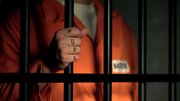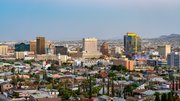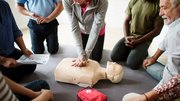Article
Mobile boarding passes herald cell-phone self-service for travel
As more airports use paperless ticketing and mobile check-in, the technology spreads to other travel-related industries.

January 20, 2009
As more airports adopt two-dimensional boarding passes for cell phones in 2009, airlines will expand their mobile-service offerings and the technology will spread to other travel-related industries, experts say.
NCR Corp., which has worked with Delta and other airlines to develop mobile check-in and boarding passes, is ready with a full suite of mobile features, including flight check-in, flight status updates and schedule viewing, and booking and ticketing for loyalty members with online registered profiles, said Tania Ladic, NCR vice president of marketing for the travel industry.
| ||||||||||||||||||||||
The idea isn't to replace kiosks but to give customers another self-service option, Ladic said. In some industries, the two-dimensional barcodes could work in tandem with self-service kiosks.
The process for receiving a mobile boarding pass varies slightly with each airline, but generally it involves checking in for a flight on a Web-enabled phone or computer and opting to have a two-dimensional barcode sent as an email or multi-media message to a phone, where it can be displayed and scanned like a paper ticket. The two-dimensional barcodes differ from one-dimensional UPC codes because they display encrypted information both horizontally and vertically, whereas one-dimensional codes, such as UPC symbols scanned during retail sales, provide data only across vertical lines.
Airlines are currently working with the Transportation Security Administration to test two-dimensional mobile boarding passes. Five airlines at 14 airports have tried the system since Continental began testing it at Houston's George Bush Intercontinental Airport in November 2007. Industry experts expect use to become widespread this year as airlines and the TSA become comfortable that the system is working smoothly.
The TSA worked with the airlines to develop scanning and encryption standards and add an extra layer of security, said Lauren Gaches, a TSA spokeswoman.
"My understanding is there are no major issues," Gaches said. "I have seen somebody use it and it went very smoothly."
Globally, many mass transit systems, especially Japanese rail systems, and even cinemas and other public venues are adopting mobile ticketing.
NCR's Ladic expects mobile check-in technology to expand into other travel segments such as hotels and car rental companies by the end of the year. The functionality would mirror that of the current mobile solution for airlines, where customers could check in on a phone and receive a 2D barcode to be scanned at a kiosk, where they could receive a car rental agreement or obtain a room key, for example.
Airlines will also continue looking for ways to expand mobile self-service, said Mary Clark, a spokeswoman for Continental.
"This is something that's going to continue to grow," she said.











